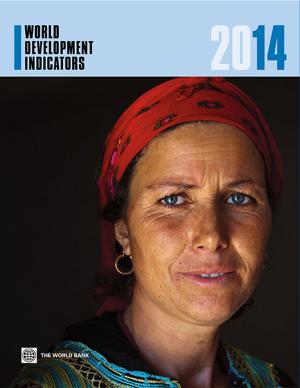Energy Efficiency
Lessons Learned from Success Stories
Nonfiction, Science & Nature, Technology, Power Resources| Author: | Gary Stuggins, Alexander Sharabaroff, Yadviga Semikolenova | ISBN: | 9780821398043 |
| Publisher: | World Bank Publications | Publication: | January 15, 2013 |
| Imprint: | Language: | English |
| Author: | Gary Stuggins, Alexander Sharabaroff, Yadviga Semikolenova |
| ISBN: | 9780821398043 |
| Publisher: | World Bank Publications |
| Publication: | January 15, 2013 |
| Imprint: | |
| Language: | English |
Energy efficiency is an important factor in an economy, since it helps meet energy needs, decrease costs, and lower environmental impacts. A review of the evolution of energy intensity in European and Former Soviet Union countries indicates a positive trend: high-energy-intensity countries have now reached the level of medium-energy-intensity economies 15 years earlier, and in the same period, medium-energy-intensity ones had similarly evolved to levels of low-energy-intensity. At the same time, the fast transitioning economies of Central Europe converged towards similar levels of energy intensities, in line with EU Directives, while successful EU-15 countries managed to maintain economic growth while keeping energy use flat. This report looks at how countries effect the transition from high- to medium- to low-energy-intensity, exploring whether leapfrogging is possible (it’s not) and what policies can be particularly helpful. Some of the lessons include: energy prices tend to evolve from subsidized levels to full-cost-recovery to full-cost-recovery-plus environmental externalities; industrial energy efficiency is often the starting point, with privatization and competition driving companies to reduce production costs, including energy; successful countries excell at governance (setting targets, building institutional capacity, creating and improving the legal and regulatory framework, and monitoring and evaluating); households tended to be the last, and most difficult, area of reform, starting with pricing improvements, outreach campaigns, financing programs, and building certificates programs.
Energy efficiency is an important factor in an economy, since it helps meet energy needs, decrease costs, and lower environmental impacts. A review of the evolution of energy intensity in European and Former Soviet Union countries indicates a positive trend: high-energy-intensity countries have now reached the level of medium-energy-intensity economies 15 years earlier, and in the same period, medium-energy-intensity ones had similarly evolved to levels of low-energy-intensity. At the same time, the fast transitioning economies of Central Europe converged towards similar levels of energy intensities, in line with EU Directives, while successful EU-15 countries managed to maintain economic growth while keeping energy use flat. This report looks at how countries effect the transition from high- to medium- to low-energy-intensity, exploring whether leapfrogging is possible (it’s not) and what policies can be particularly helpful. Some of the lessons include: energy prices tend to evolve from subsidized levels to full-cost-recovery to full-cost-recovery-plus environmental externalities; industrial energy efficiency is often the starting point, with privatization and competition driving companies to reduce production costs, including energy; successful countries excell at governance (setting targets, building institutional capacity, creating and improving the legal and regulatory framework, and monitoring and evaluating); households tended to be the last, and most difficult, area of reform, starting with pricing improvements, outreach campaigns, financing programs, and building certificates programs.















